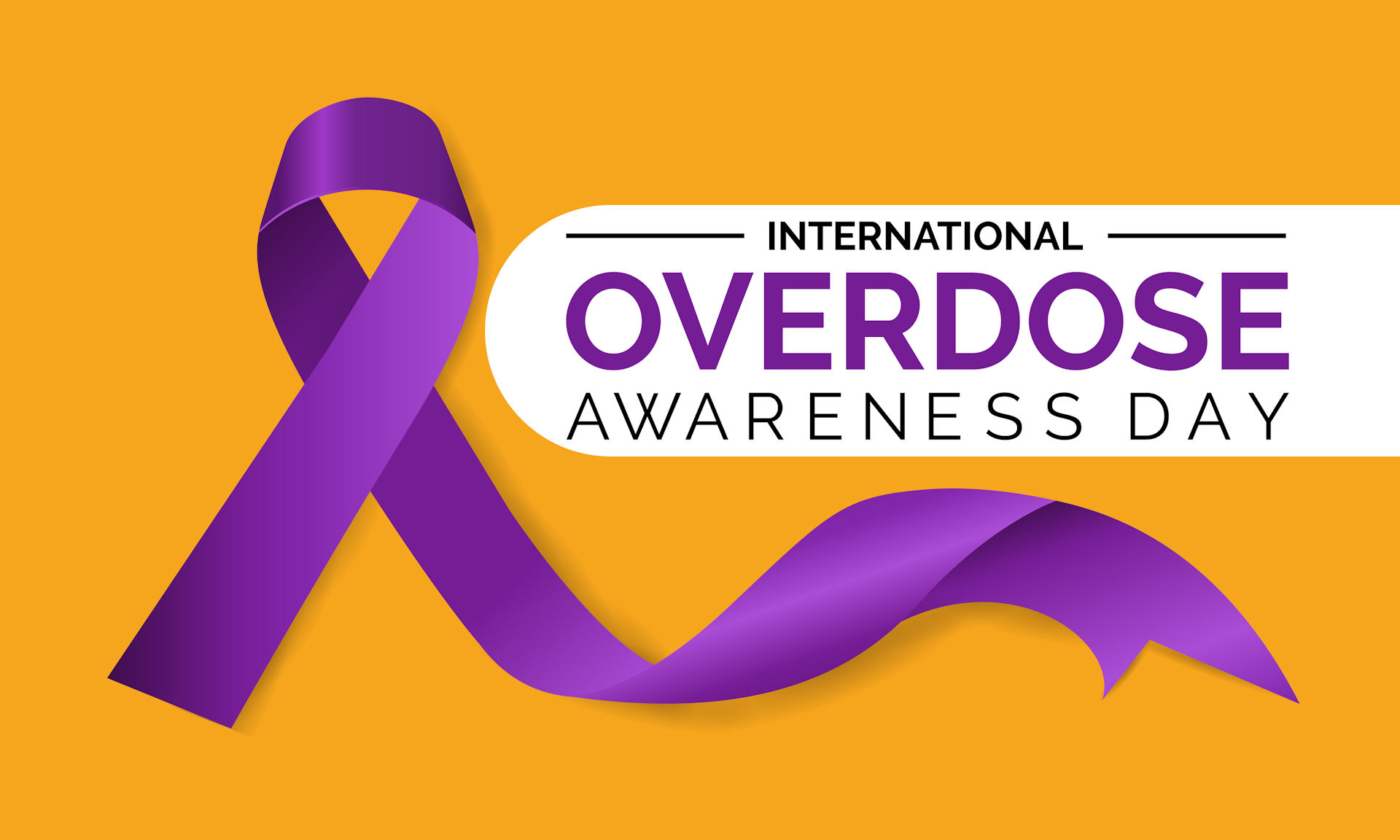From movies to real-life stories, we can all say we’ve heard or seen an example of someone overdosing. Usual depictions are of someone lying on the ground with foam coming out of their mouth, but what are the real symptoms of someone overdosing? Can you help someone who has overdosed?
Overdosing in the United States has reached crisis levels. Arizona alone ranks 12th in the nation in mortality rates, seeing 10 overdose deaths a day in 2021. In the same year, 19.2% of people aged 12 and older admitted experimenting with illegal drugs which tops the national average by 14.7%. The most commonly used illegal substance was marijuana, with cocaine, heroin, and methamphetamines following.
Granite Mountain Behavioral Healthcare in Prescott Valley, Arizona can help with substance abuse recovery, and raising awareness of overdose prevention through observing International Overdose Awareness Day.
Understanding Overdose
Before tackling how to help people who have overdosed, let’s first learn to recognize how an overdose looks and what the root causes may be.
What is an Overdose?
What happens when someone overdoses? An overdose is what occurs when a person exceeds the recommended amount of a substance, such as a drug or medication. The substance overloads the body’s ability to metabolize it which results in serious damage, hospitalization, and possibly death.
Causes of an overdose
Some common causes of overdoses are:
- Improper drug storage practices. This makes drugs and/or medications easily accessible to pets and children.
- Ignoring drug dosage instructions. This results in a person taking too much medication or medicating too often.
- Inappropriate use. This abuse of prescription medication or illicit substances, sometimes mixing different medications or taking them with alcohol.
- Mental health history. Anxiety, depression, or even suicidal thoughts can lead to intentional overdoses.
What are the signs of an overdose?
Overdosing signs can appear different depending on the drugs and/or substances used.
Recognizing Overdose by Substance
There are two main types of substance overdoses; stimulant overdose and opioid overdose.
Stimulant substances such as cocaine, crack, speed, and ecstasy raise the body’s heart rate, breathing intensity, and blood pressure.
Some common symptoms of simulant addiction are:
- Nausea/vomiting
- Chest pain
- Racing pulse
- Teeth grinding
- Foaming at the mouth
- Sweating
- Extreme paranoia
- Seizures
- Stroke
Opioid overdoses are induced by drugs like heroin, OxyContin, Morphine, Fentanyl, and other opioids. More common than stimulant overdoses, opioid overdoses lead to more deaths since they directly affect the body’s ability to breathe.
Common opioid overdosing signs are:
- Unresponsiveness to pain, shaking, or shouting
- Stopped and/or slowed breathing
- Blue coloring of lips and fingers
- Gurgling and/or choking sounds
- Stopped and/or slow heartbeat
How often do overdoses occur?
Opioid overdose rates are increasing exponentially and are now the foremost reason for accidental deaths in the United States. Current estimates by the CDC place 1000 daily emergency room visits related to opioid misuse, with an average of 91 daily opioid overdose-related deaths.
What to Do if Someone is Overdosing
Call 911 immediately if you recognize overdose symptoms in anyone.
- Ensure the victim stays calm.
- Get the person into a lying position and protect their head while clearing their airway.
- Shout, shake them, and massage their sternum with your knuckles.
- If you are trained in its use, administer Narcan if it is available.
- Call 911
- Begin rescue breathing methods. Clamp down their nostrils and breathe into their mouth every five to seven seconds. Keep breathing for them until emergency services arrive or until they become responsive.
Summary: If it’s a stimulant overdose, keep them calm. If it’s an opioid overdose, stimulate them.
- Leave the victim unattended
- Inject them with salt, speed, saltwater, or anything else (Save for Narcan)
- Place them in cold or ice water
- Do anything to extend the length of time they spend without oxygen. This will lead to serious brain damage and death.
Overdose Prevention
August 31 is International Overdose Awareness Day. This is an annual, global event that seeks to raise awareness of the dangers of drug use, reduce substance use disorder cases, and remember the many people lost to overdosing. We review harm reduction techniques and advocate for change that will see fewer children and loved ones suffer drug-related deaths.
CDC data shows 107,622 drug overdose deaths in 2021 in the United States alone, a 15% increase over the previous year. Synthetic opioids (like fentanyl) and psychostimulants (like methamphetamines) were the main causes of the increase, accounting for over 80% of all overdose-related deaths.
Working Together to Combat the Overdose Crisis at Granite Mountain

Overdosing is a serious situation that is increasing its death toll each year. This doesn’t mean that there is no hope. If you or a loved one are suffering from drug dependency, or if you know someone who suffered an overdose before, you can join Granite Mountain in observing International Overdose Awareness Day.
We boast many custom-tailored methods of drug intervention and substance abuse treatment that can help you or your loved one get back on track to living a healthy life. Contact our admissions team to book a facility tour, make reservations, or voice any queries or concerns you may have.



